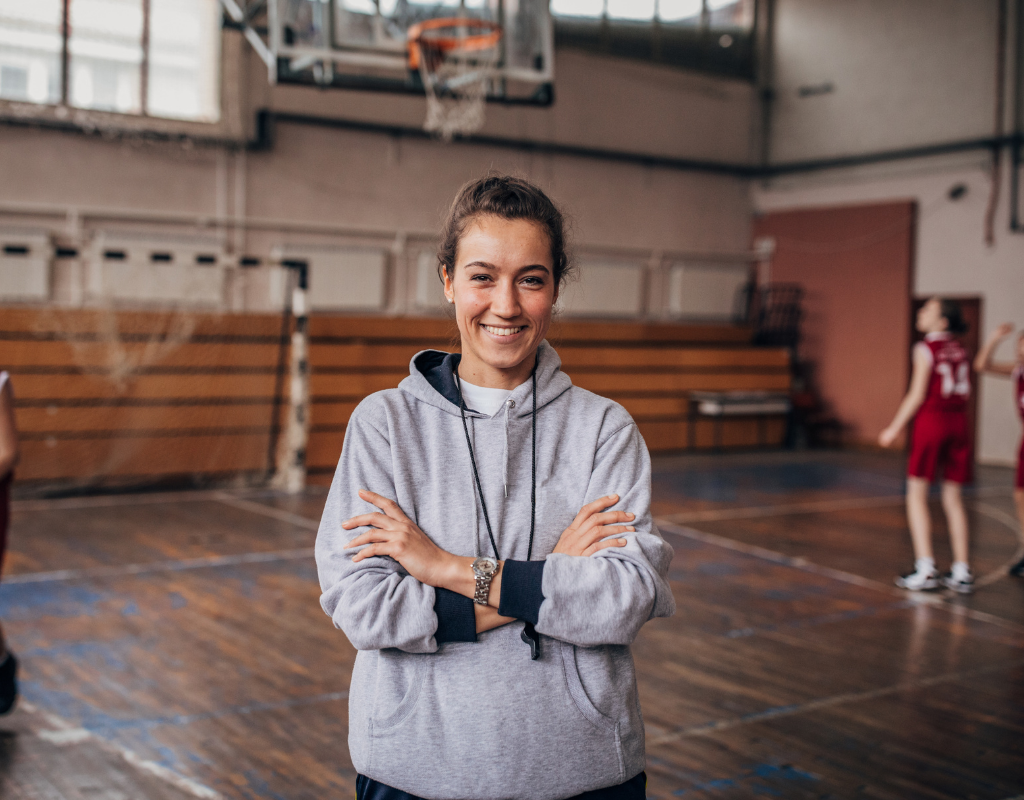These are some of the most common top 10 myths of Female Coaching:
#1: Women just want to chat
It is a common misconception that females only want to chat. Social interaction is one of the most important factors in increasing adherence in sport, therefore a few conversations here and there should not be a concern. A harmonious successful team is one that is unified and works together, conversation increases connections resulting in a more cohesive team. However, ‘chatting’ is something that is not all that females want to do.
#2: Women can’t pursue full time sporting careers and balance family
It is often believed that females cannot have a full-time sporting career or role and balance family life, this is incorrect. Many females balance work, family, and a social life balance everyday this is not different for sporting careers although sporting careers may be more demanding on the body it is not something that women are unable to achieve.

#3: Women’s bodies can’t handle the stress of training
It is often looked at that the female body is fragile and can easily break when loaded, due to anatomical layout and view of females being weaker. As well as a view that females cannot train as hard when menstruating, this does not affect athletic performance of strength, endurance, coordination, or speed. Female anatomy is different to males however it does not make them weaker or more fragile, and with any body needs training to strengthen.
#4: Women are intimidated by male training partners
Although some women can be uncomfortable in certain situations when training alongside males it does not stem from intimidation. This comes from an individual decision; many female athletes thrive in situations that are more competitive and that challenge them which they can often find against males.

#5: Women lack confidence in sport
Confidence is a player’s belief in their own ability to execute and perform a task, often coming from assessment of past performances, training and preparation. Female athletes do not lack confidence in sport to perform but rather lack the accessibility and opportunities to increase performance. As well as a lack of media representation and role models to create a sense of drive.
A supportive community is crucial in increasing confidence, as it greatly affects individual opinions. This is why there is a misunderstanding as there is low levels of participation.
#6: Women are harder to coach
Women are often more open minded to being coached and trying/learning new ways of performing to increase performance. They often want to be included in decision making. Often interacting with the coach more to create a better understanding of each other.
#7: Athletic performance changes the female physique
A main limit for female participation in sport is that it changes the physique so much it makes you look like a man. This is something that has been ongoing stigmatising women in sport as masculine, although sports change the physique it does change in the sense that it makes you more masculine as biologically it is predetermined.

#8: Women don’t take criticism well
Women will tend to spend more time reflecting upon their performance at the event, this can be negative or positive. There is a greater sense of not wanting to disappoint the team or make mistakes during performance. This is what enhances female performance, by being able to look back and improve on skills. Taking criticism is different for each individual regardless of their gender.
#9: Women don’t train as hard as males therefore can’t professionally play
Every individual has unique training requirements in physiology, biomechanics, psychology, and nutrition. Hard work comes down to individual drive and capacity independent of gender.
#10: Women are not as competitive
It is a misconception that women will be more submissive in a competition scenario. This reflects anachronistic beliefs of gender roles in society. Sport exposure at a young age fosters competitive drive, shaping future athletic development. It can be equal between men and women based on their early childhood experiences.
Don’t forget to check our Female coaching Short-Course!
